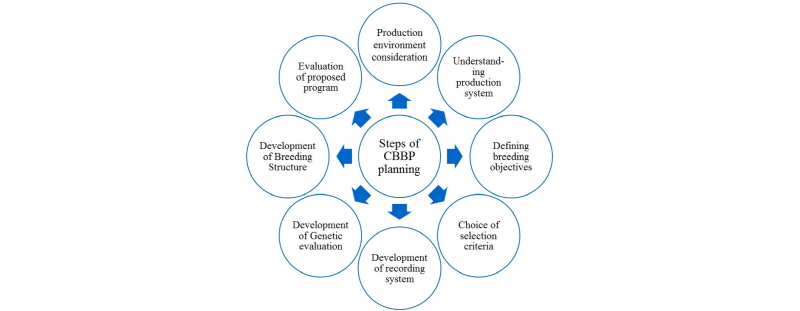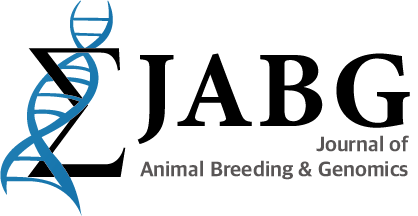Abstract
Community-based breeding (CBB) is a farmer-participatory approach having common interest to conserve and improve their genetic resources under low-input production system. In Bangladesh, the history of CBB for livestock species is quite recent and so far, several breeding programs have been implemented in a limited scale mostly initiated and supported by academic and research institutions but government is being moved. Some of these programs have shown promising results related to community herd’s/flock’s production performance and farmers’ livelihood improvements, particularly with Red Chittagong cattle, Black Bengal goat and Indigenous chicken. Farmers’ participations are encouraging in those breeding programs. However, like other developing countries, implementation of long-term and sustainable community-based breeding programs (CBBPs) is a major challenge due mainly to short-term funding commitment from national and international donor agencies, lack of government commitment and rapid urbanization. The experiences gained from the previous CBBPs indicate that self-sustained programs operation is almost impossible under smallholder production systems where continuous technical and financial support services are needed. Taken together, institutional and infrastructural arrangement for functional breed society formation and for technical supports from local and national government office, financial assurance at least for complementary services and farmers’ participation as owners of the programs are essential for successful implementation and sustainability of a breeding program in a wider scale.
Acknowledgements
This work was carried out with the financial support of “Brain Korea 21 plus” program at the Department of Animal Science and Biotechnology, Chungnam National University, Daejeon, Republic of Korea.
Figures & Tables

Basic elements and principles for planning community-based breeding program (CBBP) given by FAO (2010).


